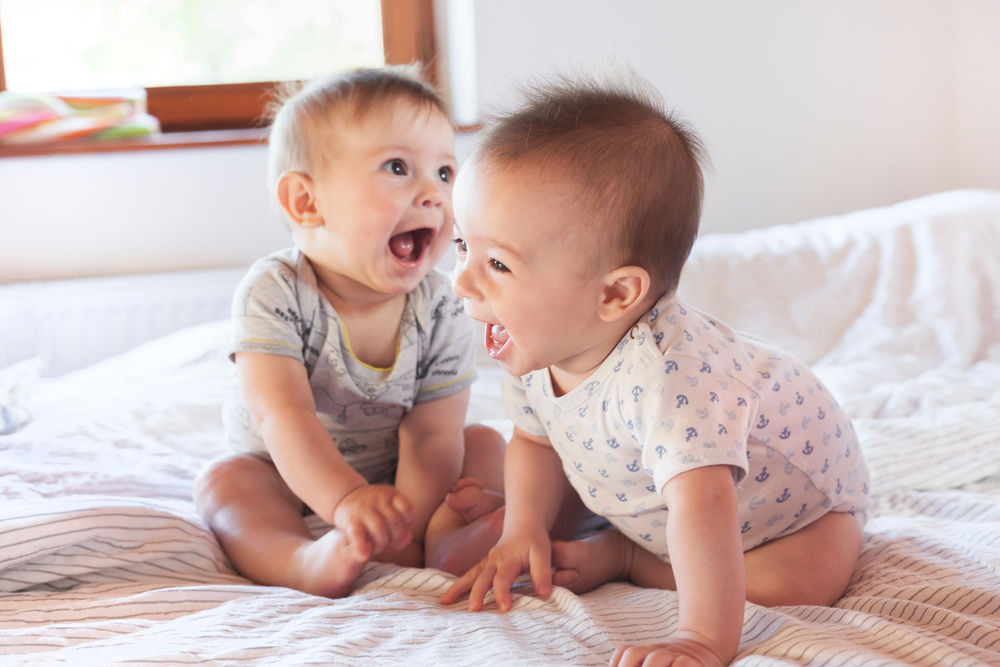Children’s laughter is frequently interpreted as a simple display of joy, but scientific research reveals a deeper meaning lies beyond the surface. Contrary to popular assumption, children’s laughter (along with adults’) is more than just a sign of happiness; it represents a complex interplay of cognitive and emotional processes, revealing fascinating insights into their developmental journey.
Understanding the evolution of laughter
Henri Bergson, a French philosopher, laughter derives from our ability to instinctively analyze and judge the inconsistencies in a joke or action—a technique that is firmly rooted in our evolutionary past. In the words of Bergson, “The laughable element … consists of a certain mechanical inelasticity, just where one would expect to find the wide-awake adaptability and the living pliableness of a human being.”
The developmental journey of laughter
Babies learn to laugh quickly after birth, typically emulating their parents’ laughter for approval and connection. Infants are inextricably linked to their caretakers during their first few months of life, learning about the environment through imitation and seeking validation from adults around them.
As babies develop, they learn to distinguish themselves from their parents and surroundings. Between the ages of two and five, they begin to develop a sense of autonomy and individuality. During this time, they will face new experiences that may cause surprise, confusion, or amazement.
Laughter plays an important function in this developmental process. When confronted with something unexpected or frightening, newborns may hesitate before recognizing the situation is safe. For example, a child may giggle when they see their father wearing a phony clown nose. Initially, people may feel embarrassed or confused, but as they realize it’s simply a joke, they feel relieved and amused.
Children may also laugh at the antics of their older siblings or other family members, finding amusement in funny looks or playful gestures. This process of confronting the unexpected, feeling confused, and then finding reassurance and delight via laughter is an important part of childhood development.
As children mature and develop cognitive abilities, their ability to understand humor improves. Around the age of five or six, they begin to grasp abstract concepts and logic, allowing them to better understand jokes and hilarious situations. This cognitive development enables toddlers to identify inconsistencies, experience moments of surprise, and eventually find resolution and amusement through laughter.
The ability to recognize and enjoy humor marks significant milestones in a child’s mental growth and development. Laughter acts as a sign of cognitive and emotional development in children, beginning with imitation and seeking praise and progressing to understanding abstract concepts and reasoning.
The role of parents in children’s laughter
The laughing that flows between parents and their newborns is more than just a pleasant sound; it is an essential component of child development. But why do parents laugh at their children without thinking twice? While it is natural to smile with excitement at the sight of a baby, the complexities of laughter are deeper.
As a parent gazes adoringly at their infant, they are filled with awe and astonishment. Babies, with their particular blend of innocence and curiosity, can appear like small enigmas to their caregivers. However, this brief period of perplexity is immediately replaced by a flood of warmth and familiarity, resulting in laughter.
The inherent need to share laughter and lighthearted moments with infants extends beyond simple entertainment. It acts as a foundation for strong ties between parents and children, creating the foundations for healthy emotional development.
Encouraging parents to laugh with their newborns can have a variety of benefits. Not only does laughter foster a nurturing environment favorable to positive behavior, but it also functions as a natural immunity booster, improving general health and resilience.
Furthermore, these shared moments of merriment assist infants form a good relationship with laughter, instilling a sense of security, love, and joy from a young age. As they grow, this early exposure to laughing fosters healthy social interactions and emotional well-being, laying the groundwork for strong parent-child bonds.
By incorporating laughter into caregiving, parents can foster an atmosphere of warmth, connectedness, and emotional security within the family. So, allow the laughter to flow freely and watch as it creates a tapestry of joy and affection that bonds parent and kid together in love and laughing.
Encourage laughter for healthy development
Understanding the underlying meaning behind children’s laughter emphasizes the need to provide opportunities for laughter and joy in their lives. Parents can help their children’s cognitive and emotional development by enjoying times of laughing and amusement. Laughter is a powerful tool for making connections, developing resilience, and cultivating a positive attitude in life.











